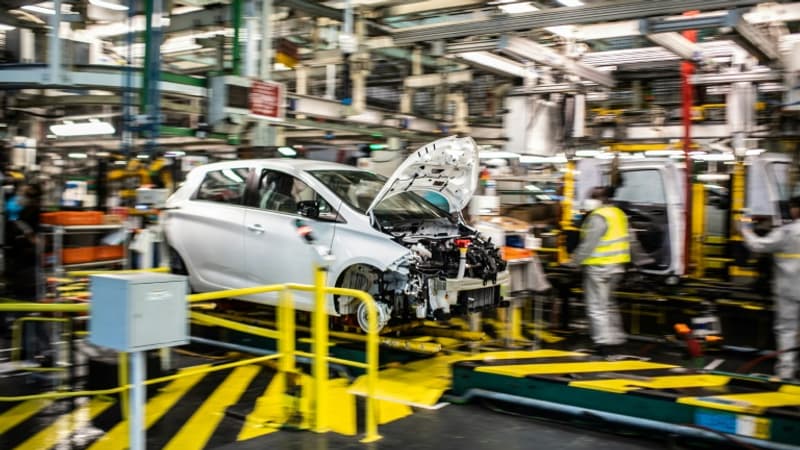Supporting the sales of electric cars, without subsidizing Chinese brands: this is the dilemma that the French government wants to solve. On the occasion of the “Reindustrialize France” day organized at the Elysée next Thursday, Emmanuel Macron should announce several projects to “green” the industry.
Among them, an ecological bonus that would encourage the production of electric cars with a better carbon footprint, he understands le figaro.
How does the current bonus work?
Since the beginning of 2023, the ecological bonus has been granted for the purchase of a new 100% electric car, with a subsidy of 5,000 euros, without rental conditions, granted for all models below 47,000 euros and less than 2.4 tons . It is no longer offered for plug-in hybrid cars, which still benefited from it last year.
This bonus is theoretically limited to 27% of the purchase price of the vehicle. Theoretically, because there are no more eligible models for less than 18,517 euros (threshold from which this 27% threshold is reached). The cheapest electric car, the Dacia Spring, currently starts at 20,800 euros. If the small electric car had stayed at its starting price for 2021, at 16,990 euros, its bonus would be limited to 4,587 euros (that is, 27% of the purchase price).
If we immediately think of the Chinese brands, it is mainly the Western brands that today sell in Europe models assembled in China and imported into Europe. Thus we can cite the Tesla Model 3 and most of the Model Y (only the Performance versions are assembled in Berlin), the BMW iX3 or even this famous Dacia Spring.
Protection of the European automotive sector
With a new version of the bonus, the idea would be to recreate entry barriers to the European market for manufacturers outside the Union and in particular Chinese brands, which have strong ambitions in Europe. These barriers existed in the form of safety or anti-pollution standards in heat engine models, but they had disappeared with the advent of electric models.
A real economic danger, as several studies indicate, as long as the automotive sector continues to be a reservoir of activity and important jobs in Europe.
“Competition from Chinese electric vehicles could cost the European automotive sector 24 billion euros a year by 2030,” underlines an Allianz Trade document published on Tuesday, May 9.
Towards a more “ecological” bonus?
The new criteria for granting the bonus would take into account, in particular, the energy used for production. “The Government will take into account the type of energy used to produce electric vehicles and batteries to grant or not the ecological bonus,” he writes. Le Figaro.
With electricity production still 70% fossil fueled in China, France (and more broadly Europe) could find a new reason to exclude itself from this competition. Especially in state aid that aims to promote “clean” vehicles, zero emissions when they are running, but with the argument of also minimizing the carbon footprint during production.
An idea already mentioned by the PFA, the Automobile Platform, which represents the French car industry, last month, when evoking a “made in Europe” bond that would follow the American example.
“The possibility of a rebate reserved for vehicles made on European soil, like the IRA (Inflation Reduction Act) in the United States, is one of the lines of thought,” Marc Mortureux, director general of the PFA, told Reuters. on the sidelines of a conference on the possibility of a “European Purchase Law” on April 19.
It remains to be seen how this label would materialize specifically, initially in France, to grant or not the ecological bonus to certain models. Especially in a context where motorists are strongly encouraged to switch to electric and the cheapest model, the Dacia Spring, is assembled in China.
Two electric and made in Europe models will soon be released on the market, with a target price of 25,000 euros: the Renault R5 for next year and the Volkswagen ID.2 for 2025.
Source: BFM TV


